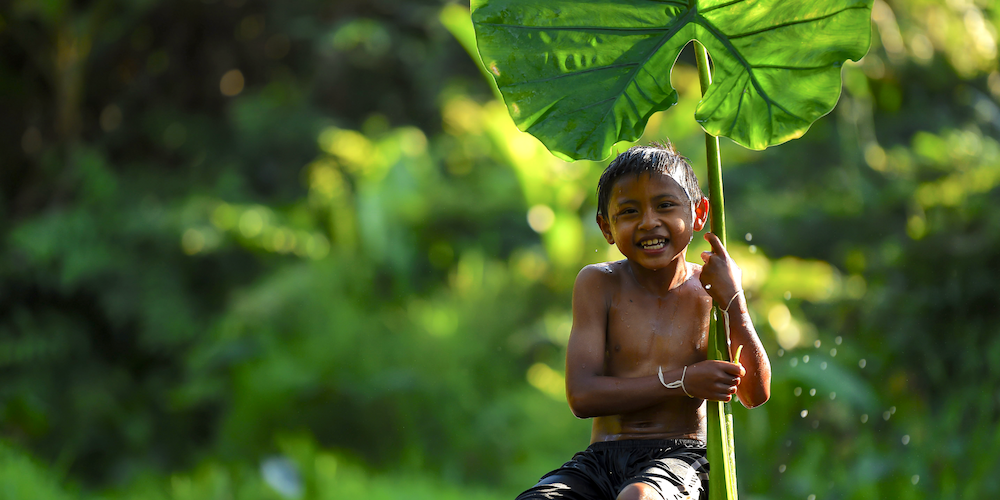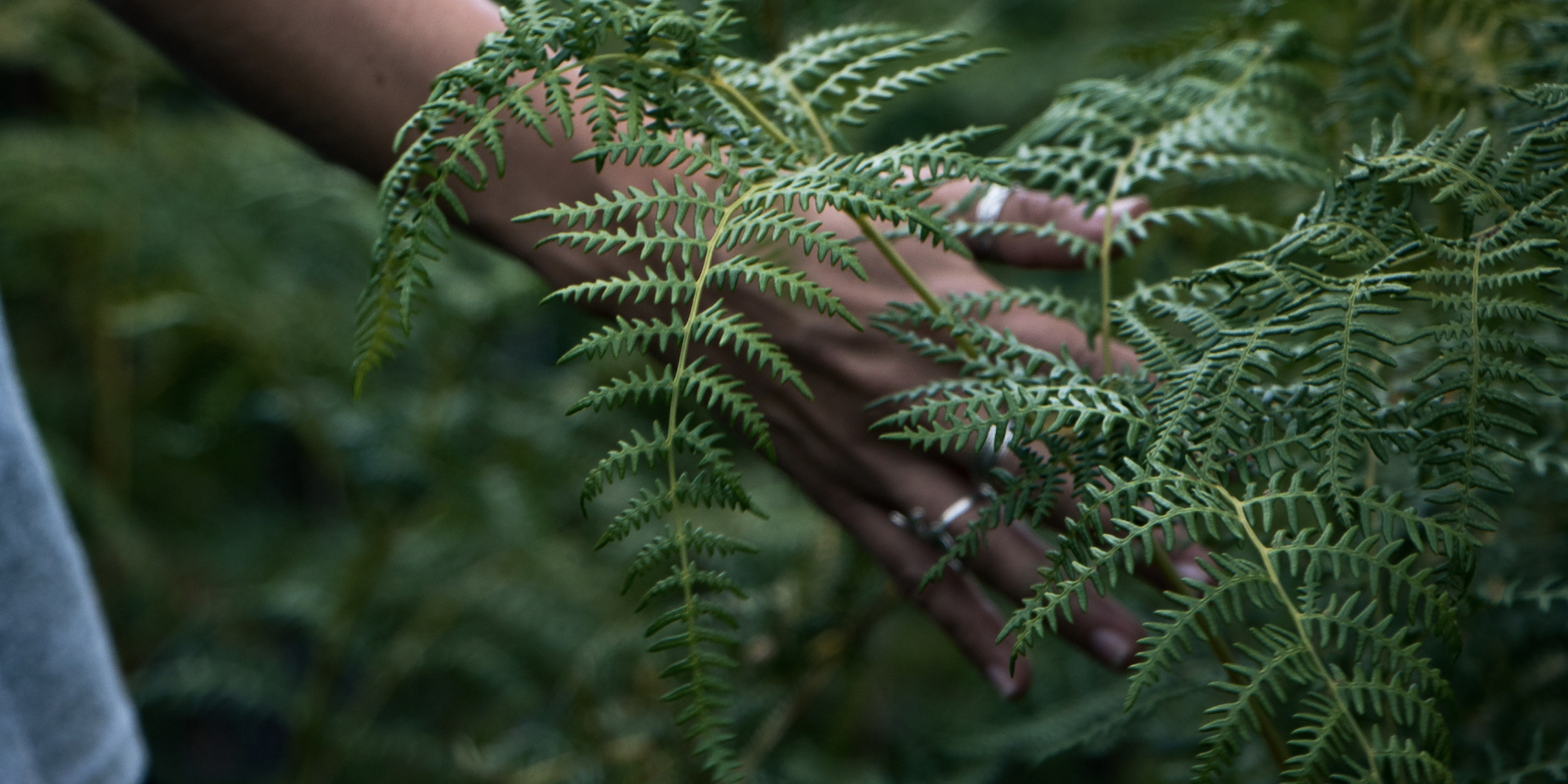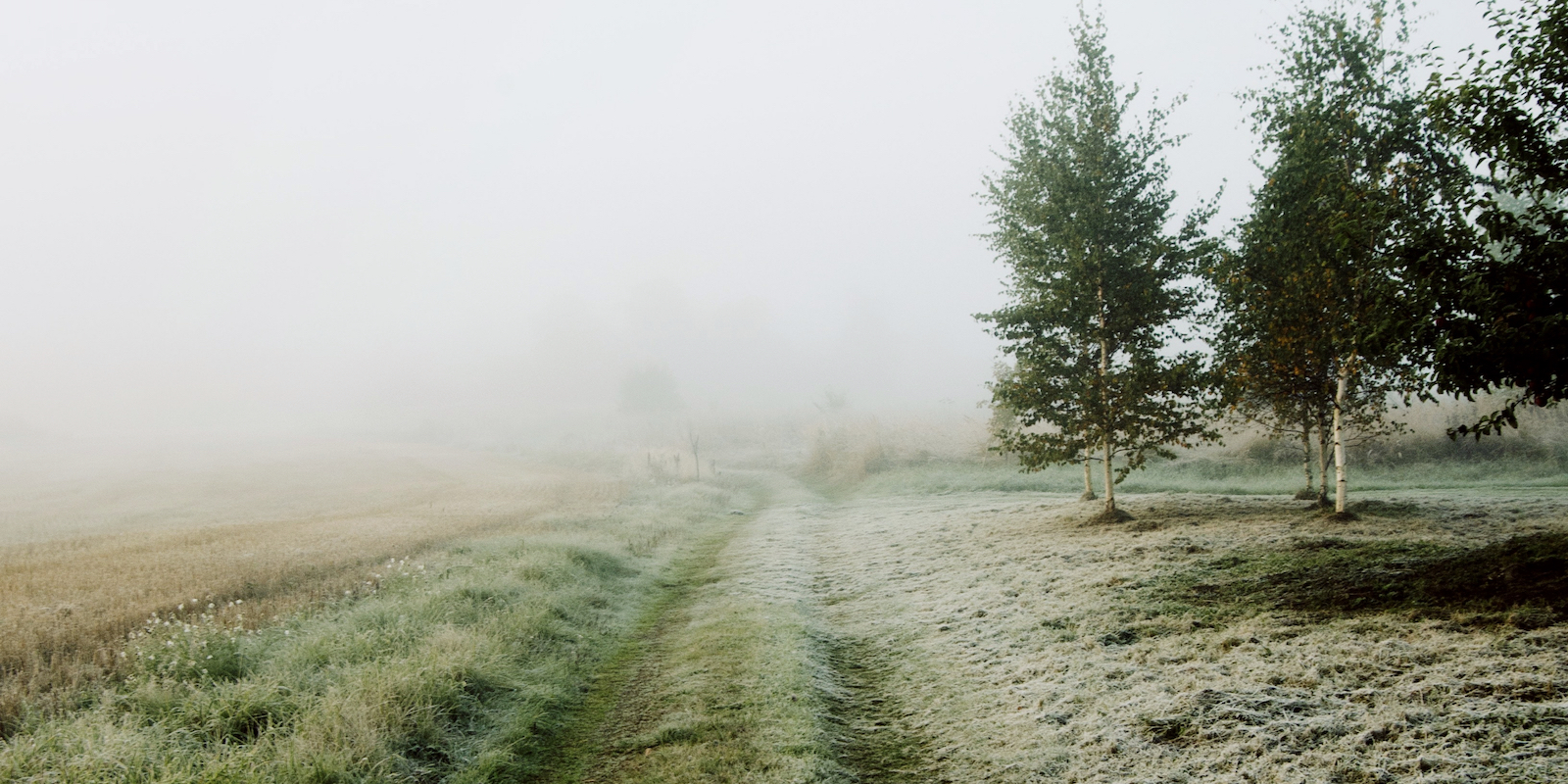Stephanie Noble takes us on a journey to understanding what true happiness is. Explore how to connect with happiness in every moment, “even when conditions are such that there’s no blue sky to be seen at all.”
Seeking & Defining True Happiness
My granddaughters are seven and five years old. Their definition of happiness is getting what they want when they want it. If things go their way then it’s the ‘best day ever’ and if they are denied anything, it’s suddenly the ‘worst day ever’.
There are plenty of us adults who concur with this definition of happiness. They see it as some externally regulated occurrence over which they have little or no control. Their emotional lives wobble about like a yoyo being yanked on a string. This is not happiness! It’s helplessness. No amount of ice cream, stuffed animals, compliments or cute shoes can create true happiness. Which is not to say we can’t enjoy these things, but we delude ourselves if we think they will make us happy.
It Is Not For Lack Of Stuff That We Suffer
As part of the maturation process, most people recognize that if they want food, shelter, clothes, transportation, etc. — the necessities of modern life — then they will have to work for them. Maybe that motive of achieving happiness through attaining these things is helpful in its way. These things can provide some sense of security, contentment and maybe achievement. But sustainable happiness? Not so much. It still may feel random and elusive. So, they may begin to blame themselves. They feel that there is something inherently wrong with them if they can’t appreciate all they have, especially if on that list, besides stuff, they also have close relationships they value…most of the time. They may feel guilty for not feeling sufficiently grateful for all they have, making them feel even more discontented.
Watching my granddaughters go through their emotional gyrations reminds me of myself as a little girl. I too knew the soaring heights of, say, Christmas morning seeing a pile of presents under the tree. Then within a matter of minutes, I knew the lows of sitting amidst the litter of ribbons and torn wrapping paper, realizing it was all over. ‘Is that all?’ I would ask. Go ahead and call me a spoiled brat, but I had a hunger no number of presents could fill. And we all do.
‘Is that all? Is this what life is? Seeking happiness through the acquisition of stuff?’ If you were a person who was made permanently happy by stuff, you would not be reading this. So, let’s be honest and acknowledge together that it is not for lack of stuff that we suffer.
The Buddhist Meaning Of Dukkha
You may be familiar with the Buddhist word dukkha. Dukkha is suffering that is caused by greed, aversion and delusion. Dukkha is such a great word because when it comes to us English speakers, it already contains the quality of crappiness in its syllables: doo-doo, cah-cah. We just double-down on the word dukkha. There is an instant understanding of how dukkha feels. We’ve all had times we could easily describe as shitty. And there’s a relief in being able to acknowledge that.
Let’s look a little closer at greed, aversion and delusion:
- Greed is a hunger that can never be sated, not just for stuff but for experiences, for novelty, for approval, for accolades and so much more. It is a bottomless wish list.
- Aversion is an endless hit list, all the things that annoy and threaten us in one way or another, activating fear, anger and hatred.
- Delusion is a listlessness, living in a fog, being tossed about on ocean waves, not knowing how to surf, always gulping for air.
You can see how much suffering, how much dukkha, is caused by these ways of relating to life.
But there is another word, sukha, that is the happiness that grows from our own cultivation of mindfulness rather than waiting for someone else to hand us happiness on a platter. It offers a sense of freedom from constantly craving more.
How Do We Cultivate True Happiness?
Wherever we are right now we pause, release whatever tension is present, come into all the senses, cultivate spaciousness to hold all the thoughts and emotions that may be entangled in tight knots. And we give ourselves some infinite lovingkindness: May I be well. May I be at ease. May I be happy. Then (and only then) we extend our well-wishing out into the community of all beings: May all beings be well. May all beings be at ease. May all beings be happy.
Sure, we still may feel some extra energetic zing when our ducks are all lined up in a row or we receive a nice surprise or we feel relief that some bullet has been dodged, and we might have a little happy dance or celebrate any way we choose. But at a deeper level, we recognize that there is a kind of happiness that exists without the need for perfectly aligned ducks and that every moment is a cause for celebration.
Before learning more about the cultivation of true happiness, you might want to pause here and practice with one of these guided meditations by Stephanie Noble:
- Anxiety Relief Stephanie Noble 10:05
- Upset Reset Stephanie Noble 4:49
- Cultivating Ease and Awareness Stephanie Noble 15:54
- Metta: Infinite Loving-kindness Stephanie Noble 9:53
- Practicing Presence, Practicing Compassion Stephanie Noble 11:19
Watching Fleeting Emotions Pass By With Kindness & Compassion
It is unconditional happiness or joy that is expansive enough to hold even our disgruntlement, disappointment, grief, anger and every other emotion, because it rises out of the wisdom to see every emotion as a fleeting condition, like a cloud passing through an otherwise infinitely blue sky. Even when conditions are such that there’s no blue sky to be seen at all, just gray storms and even thunder everywhere we look, we know that there is a blue sky that holds it all, even the most difficult emotions.
Our happiness is not dependent on every day being sunny, every flower being in perfect bloom or our bodies being pain-free and flawless. Things can be going to hell in a handbasket, as the saying goes, and yet somehow, we find joy in the moment.
It isn’t like living in a bubble of immunity to pain. Pain happens. Loss happens. Bad news can still make the heart feel like it is breaking. Tears still fall. Fear in all its guises still arises at times. But it is visible. We see it just as it is. It is not an enemy to confront or hide from. It is not the boss of our experience. It is not who we are. It is just what is passing through our experience in this moment.
Think of a parent caring for a crying baby. The parent holds the baby, cuddles the baby, soothes the baby with soft words, coos and sings until the baby settles down. The parent is supportive witness to the experience, acknowledging that it is okay. We can be in a relationship with our own emotions in the same way. We hold them with compassion and kindness. We are not making light of the experience. We are simply holding the space for the experience within the greater understanding of the nature of impermanence. This too shall pass.
Read more: Psychotherapist Andrea Wachter uses a similar approach when describing two scenarios of how to deal with morning anxiety. Do you soothe your anxious child or do you ignore it?
Being With The Current Situation
As with all I teach, this exploration is for myself as well. My brother is dealing with a life-threatening illness. He is certainly being challenged, and all of us who love him are also challenged, to adjust to the new normal, and find a way to accept the unacceptable. And we all will, one way or another. Whether we do it by railing against the nature of impermanence, against illness, old age and death; or whether we find a more open and friendly way to be with our current situation, that’s a journey for each of us to make in our own way. We can each only do what we can do.
The more difficult the journey, the more grateful I am for my meditation practice. It doesn’t help me to escape anything. It helps me to stay fully present, to recognize the preciousness of each moment, to let go of everything but that awareness and gently hold the moment like the precious jewel it is — even seeing someone I love in a hospital bed hooked up to drips and machines. Touching his arm, hearing his voice even as he complains, I can hold the moment like a jewel, for this moment — each moment — is rarer than the most valuable stone ever mined. It cannot be duplicated or relived. There is only this moment. Just as it is. And living at that level of aliveness, being that present, is happiness.
Read more: Mindfulness meditation teacher Tony Brady celebrates the wonder of living in the present moment.
True Happiness Has No Enemies
What a gift to be alive, fully alive! Even as things fall apart, understanding that it is the nature of things to fall apart, and to come together, again and again and again.
We don’t need to put our lives on hold for happiness. And we don’t need to put happiness on hold while we live our lives. Seeing that true happiness is fully possible in every moment, we wake up to notice greed, aversion and delusion as they arise and pass through our experience. We don’t make enemies of them. Just by seeing them for what they are and holding them with compassion, we attain increasing clarity, until each moment is illuminated like the radiant precious jewel it truly is. With wise intention and wise effort, we cultivate happiness within ourselves and let it ripple out to all beings.
Read more: Buddhist teacher Jason Murphy explores the five faculties in Buddhism and explains how they can help to achieve contentedness.
This article was first published on Stephanie Noble’s blog.







